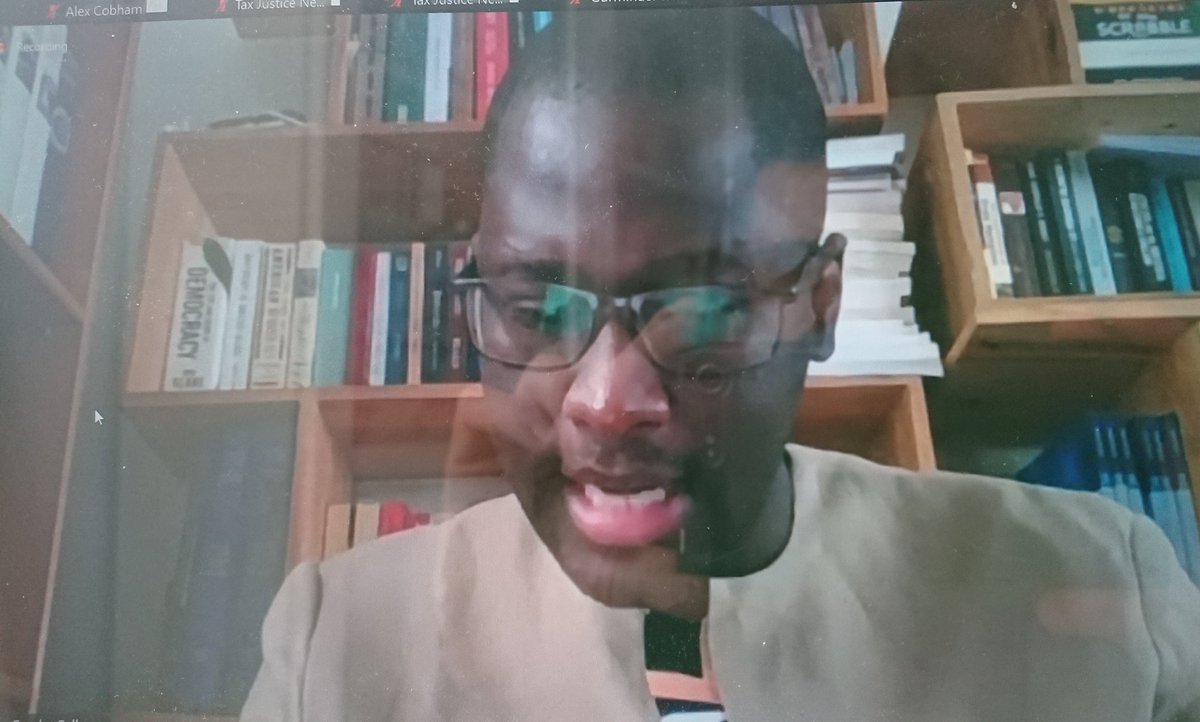
This is quite something. The French government's position on the EU move to public country by country reporting for multinational companies, a key measure to curb profit shifting abuses, appears to have been captured entirely by... the business lobby.
https://twitter.com/QParrinello/status/1385483234788642816
The French government's two-pager on its negotiating position - its critical demands - has been leaked. According to the scoop in @Contexte, the metadata of the pdf reveal the hand not of diplomats or ministers, but of a senior employee of MEDEF - the French business lobby group.
This revelation gives us two things: first, we can look at the position that MEDEF has convinced the French government to take up, and see the priorities of the lobbyists; and second, we can understand a bit more the wider French government position on tax, including at the OECD.
What can we see about the lobbyists' priorities? Remember we have a lot already, because the member state agreement to public country by country reporting has forced things into the open - see e.g. BusinessEurope's letter and the discussion here
https://twitter.com/alexcobham/status/1362725819181850631?s=20
The French/MEDEF position has three demands. The first is an enormous loophole: to allow multinationals not to publish any data at all, for 'commercial' reasons, for 6 [SIX] years, and at their own decision, without any government agreement. 

The second demand is that the public country by country reporting be, not, in fact, on a country by country basis. In particular, MEDEF/France wants to aggregate and hide *all* profit shifting outside the EU (and the 2% of tax risks in non-cooperative jurisdictions 'blacklist') 

And the third French government demand, by the lobbyist ventriloquists, is to eliminate some key variables from the reporting. In particular, the distinction between intragroup and unrelated party transactions which is crucial to reveal profit shifting. 

So in summary, the position of MEDEF - and now of the French government - is that EU public country by country reporting should not reveal the extent of profit shifting, nor the main mechanism, and ideally not anything at all for 6 years.
A total defeat of the intention.
A total defeat of the intention.
OK, lobbyists gonna lobby. But as in the BusinessEurope thread above, this also confirms the extent to which a handful of large multinationals - those with most to lose from having their tax nonsense exposed - have captured the business federations.
The vast majority of the membership of each EU country's business federation will be domestic businesses, mainly SMEs. The businesses that create most employment, and much innovation. That were hit hardest by the pandemic. And suffer unfair tax competition from multinationals.
MEDEF, BusinessEurope and others have been increasingly exposed as standing only on the side of profit shifting multinationals, and *against* a level playing field on tax transparency for their own members. Will those members stand up and demand better? Is this an #ESL moment?
The 2nd insight we may get from this leak is into French government's wider positions. Yesterday we heard it was the French government - not Ireland, for example - that proposed the ridiculously low 12.5% bar for the OECD's proposed global minimum tax rate
https://twitter.com/alexcobham/status/1385157318095015937?s=20
As that thread discusses, the French position - and the banging of the drum for 12.5% from the top of the OECD secretariat - makes no sense if it's a response to some imagined Irish threat. But if it's the result of capture by lobbyists, like MEDEF, it absolutely does.
Ultimately what civil policymakers should take from this leak - including in the EU's #CBCR trilogue, as well as the OECD negotiations - is that the French government is so completely captured right now that their position should be taken to represent the lobbyists' position.
Having a major EU member represent the views of multinationals is problematic, but far from unheard of - and much easier for others to assess once it is clear that this is the position.
How seriously, for example, should the Biden administration or the rest of the G7 now take French opposition to the proposed 21% rate for the global minimum tax? Not unseriously, because France matters; but now understanding that this is really the opposition of multinationals.
As for the EU trilogue, the Commission, Parliament and other member states are well aware already of the lobbyists' positions. Knowing that France is their direct representative should add helpful clarity; and, we would hope, make it easier to dismiss the most self-serving points
Finally, the position facing French civil society & political sphere is clear.
France is one of the biggest losers of revenue to multinationals' tax abuses - and the government is defending those abuses in international negotiations. Is this OK??
France is one of the biggest losers of revenue to multinationals' tax abuses - and the government is defending those abuses in international negotiations. Is this OK??
https://twitter.com/Jhvid0/status/1385503412679331841?s=20
Lastly: well done to those involved in obtaining this leak, and identifying the hand of the lobbyists.
But #TaxJustice should not need to rely on leaks and courageous whistleblowers.
The OECD has resisted moving tax to the UN, because 'transparency would kill negotiations'. Au contraire: sunlight is just the disinfectant that can neutralise the lobbying of tax abusers.
The OECD has resisted moving tax to the UN, because 'transparency would kill negotiations'. Au contraire: sunlight is just the disinfectant that can neutralise the lobbying of tax abusers.
Adding this very strong response to the MEDEF leak from the S&D group at the European Parliament, including comments from @Evelyn_Regner @Ibangarciadb and @AuroreLalucq - a clear determination to defend the intent of public #CBCR
https://twitter.com/TheProgressives/status/1385523299002765312?s=20
• • •
Missing some Tweet in this thread? You can try to
force a refresh








